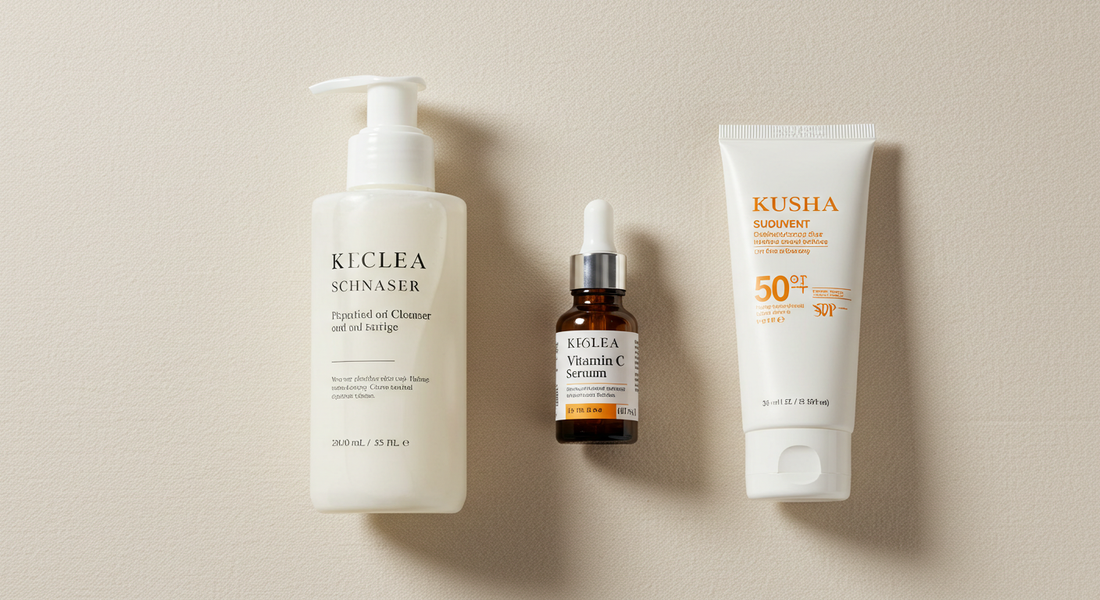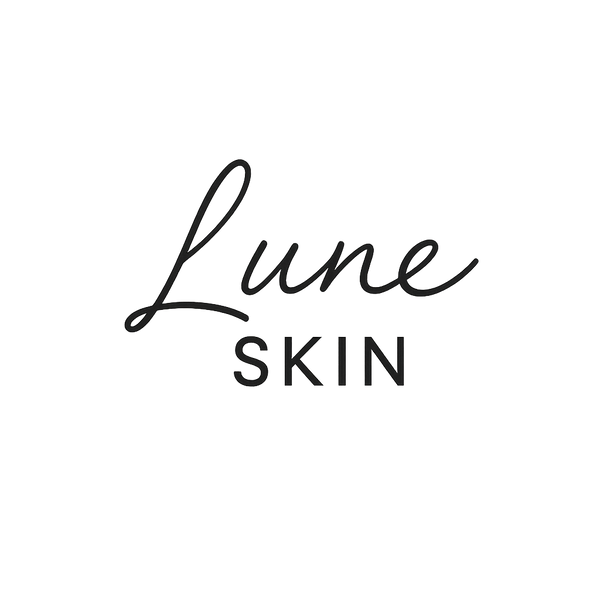
Unlocking the Power of Vitamin C Serums: Science and Application
Share
Vitamin C is one of the most talked-about ingredients in skincare — and for good reason. Known for its powerful antioxidant properties, brightening effects, and support for collagen production, vitamin C has become a daily essential for those seeking radiant, even-toned skin. But not all vitamin C serums are created equal, and using them correctly is key to unlocking their full potential.
At Lune Skin, we aim to empower users with clarity, not just products. In this article, we explore the science behind vitamin C, how to select the right type for your skin, and tips to incorporate it effectively into your routine.
What is Vitamin C in Skincare?
Vitamin C (ascorbic acid) is a potent antioxidant that neutralizes free radicals — unstable molecules generated by pollution, UV rays, and other environmental stressors. Left unchecked, free radicals contribute to premature aging, inflammation, and uneven pigmentation.
When applied topically in a stable and active form, vitamin C:
- Brightens dull or uneven skin tone
- Fades hyperpigmentation and dark spots
- Boosts collagen synthesis, improving firmness
- Enhances skin’s natural defense against UV damage
- Provides overall antioxidant protection
These benefits make it a go-to ingredient for anti-aging, brightening, and preventative care.
The Different Forms of Vitamin C
There’s more than one type of vitamin C used in skincare. Understanding the variations helps you choose one that’s stable, effective, and suited to your skin type.
1. L-Ascorbic Acid
The purest and most researched form. It’s highly effective but also the most unstable and potentially irritating, especially at high concentrations.
- Best for: Normal to oily skin, or experienced users
- Concentration range: 10–20%
- Works best at a low pH (around 3.5)
2. Sodium Ascorbyl Phosphate (SAP)
A stable, water-soluble derivative. Gentler than L-ascorbic acid, but still provides antioxidant and brightening benefits.
- Best for: Sensitive or acne-prone skin
- Converts into active vitamin C after absorption
3. Magnesium Ascorbyl Phosphate (MAP)
Also water-soluble and gentle. Known for strong skin-brightening and hydrating properties.
-
Best for: Dry, reactive, or rosacea-prone skin
4. Ascorbyl Glucoside
Stable and less irritating. Takes longer to convert to active vitamin C, but suitable for beginners.
-
Best for: Vitamin C newcomers or layering with other actives
At Lune Skin, we incorporate gentle but effective derivatives like SAP and MAP into our formulas, balancing performance with skin comfort.
How to Use Vitamin C Serum Effectively
To get the most out of your vitamin C serum, follow these core principles:
1. When to Use It
Vitamin C is best used in the morning, as it helps combat environmental stress and enhances the effectiveness of sunscreen.
- Apply to clean, dry skin right after toner (if using)
- Follow with moisturizer and broad-spectrum SPF
You can also use it at night, especially if using gentler derivatives. However, pairing vitamin C with sun exposure maximizes its protective power.
2. Layering with Other Ingredients
Be cautious when layering vitamin C with certain actives:
-
Do pair with:
-
Niacinamide (if your skin tolerates both)
-
Hyaluronic acid
-
Vitamin E (synergistic antioxidant boost)
-
Ferulic acid (stabilizes vitamin C and enhances performance)
-
-
Use with caution with:
-
AHAs/BHAs: can lower skin pH too much
-
Retinol: may cause irritation if layered
-
Benzoyl peroxide: may oxidize vitamin C
-
Introduce each ingredient slowly and observe your skin’s response. Alternating them between AM and PM is often safest.
3. How Much to Use
A pea-sized amount or 3–4 drops is typically enough for full-face application. More doesn’t mean better — overuse may cause sensitivity or waste product.
4. How to Store It
Vitamin C is notoriously unstable, especially in its pure form.
- Choose opaque or amber bottles
- Store in a cool, dark place
- Watch for changes in color or smell (yellowing indicates oxidation)
Serums from Lune Skin are packaged in light-resistant containers with stabilized formulas to ensure prolonged efficacy.
Signs Your Vitamin C Serum is Working
You might start noticing:
- A brighter, more even tone within 2–4 weeks
- Reduced post-acne marks or dark spots in 4–8 weeks
- Smoother texture and less dullness over time
- Less redness or reactivity from external stressors
Be patient — skin cell turnover takes time. Consistency and realistic expectations are key.
Who Should Use Vitamin C?
Vitamin C serums benefit nearly every skin type and concern:
- Dullness and fatigue: revives radiance
- Hyperpigmentation: fades dark spots and melasma
- Fine lines: supports collagen and firmness
- Sensitive or acne-prone skin: certain derivatives calm inflammation
Even younger users can incorporate vitamin C preventatively, particularly to protect from pollution and early aging.
If you’re new to actives, start with a lower concentration and build up gradually.
Common Mistakes to Avoid
- Using expired or oxidized products
- Skipping sunscreen after morning use
- Applying too much at once
- Combining with incompatible ingredients
- Expecting overnight results
Proper use is as important as the ingredient itself.
Vitamin C in the Lune Skin Approach
At Lune Skin, we formulate vitamin C products that are:
- Stabilized with complementary antioxidants like ferulic acid and vitamin E
- Balanced with hydrators such as hyaluronic acid
- pH-optimized for bioavailability
- Packaged to prevent light and air degradation
We prioritize derivative blends that minimize irritation while delivering visible results, especially for those new to actives or prone to sensitivity.
Our users often start with a mid-strength SAP formula and graduate to higher-concentration serums once skin tolerance is established. This progression helps avoid purging or redness common in aggressive products.
Final Thoughts: Radiance Through Knowledge and Simplicity
Vitamin C is one of the few ingredients backed by decades of clinical studies, loved across all skin types and ages. When used correctly, it’s a powerhouse that transforms dull skin into a glowing, resilient complexion.
Choose the right form, use it consistently, and support it with sun protection and a well-rounded routine. Your skin will thank you.
Lune Skin is here to guide your journey — with gentle, smartly-formulated products that take the guesswork out of effective skincare.
